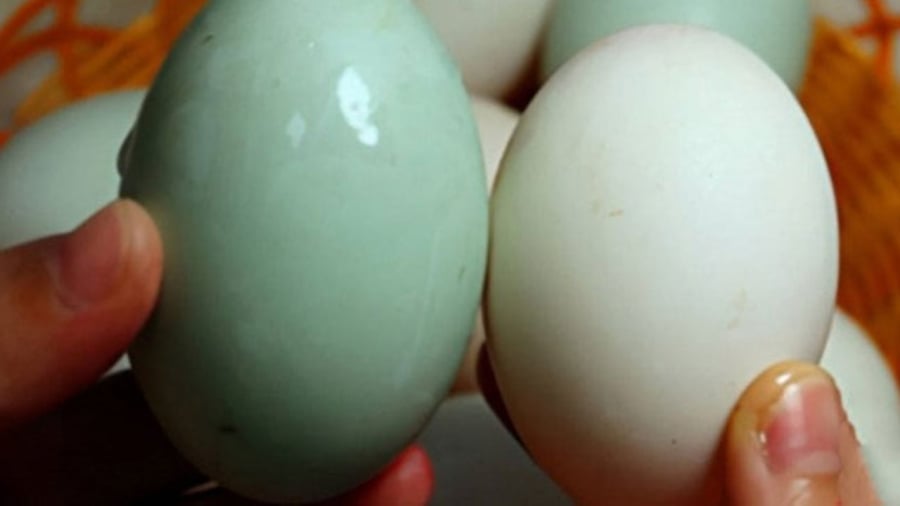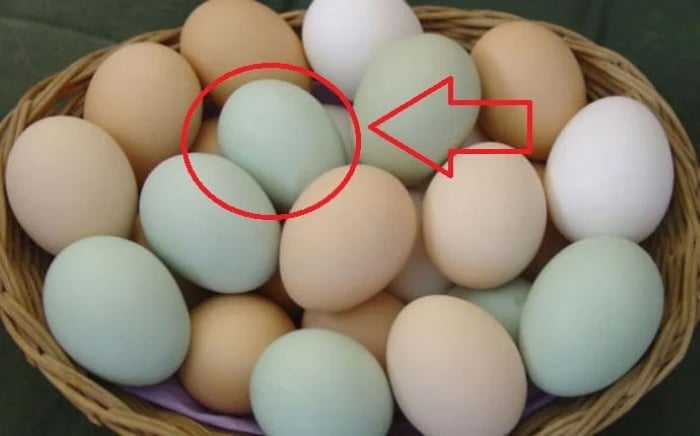Why Do Duck Eggs Have Different Colors?
The color of duck eggs, whether green or white, is primarily determined by the duck’s genetics. While it is less common, duck eggs can also occasionally exhibit a blue hue. In addition, a duck’s environment and diet can play a minor role in influencing the shade of their eggshells. Other factors, such as the duck’s age and health, might contribute as well, but to a lesser extent.
It’s interesting to note that other poultry species, such as chickens and geese, also lay eggs with varying shell colors.

Green and White Duck Eggs
Green or White Shells: Which Duck Eggs Are Better?
Both green and white-shelled duck eggs are nutritionally excellent, rich in protein, lipids, calcium, iron, and high-quality trace minerals.
However, some people prefer green-shelled duck eggs for the following reasons:
– Green-shelled duck eggs have a slightly thicker eggshell compared to white ones, offering better protection and a longer shelf life of approximately 40 days. White-shelled duck eggs, on the other hand, have a marginally shorter shelf life.
– Green-shelled duck eggs tend to have higher levels of protein and certain acids compared to their white counterparts, but they are slightly lower in selenium and lysine. Even though the difference is not significant, it is worth considering when given the choice.

Green-shelled Duck Eggs Have Thicker Shells for Better Protection and Longer Freshness
How to Choose Fresh Duck Eggs?
– Auditory Test: Hold the egg close to your ear and give it a gentle shake. If you don’t hear any sound, it indicates that the egg is of good quality. If you hear a slight movement inside, it might be an older egg and should be avoided.
– Tactile Test: When selecting duck eggs, pay attention to how they feel in your hand. Fresh duck eggs should have a slightly rough texture with a coating of white powder on the shell.
Note: It is recommended to store duck eggs in the cooler section of your refrigerator to extend their freshness. Always clean the eggshells before storing them to prevent bacterial growth.





































